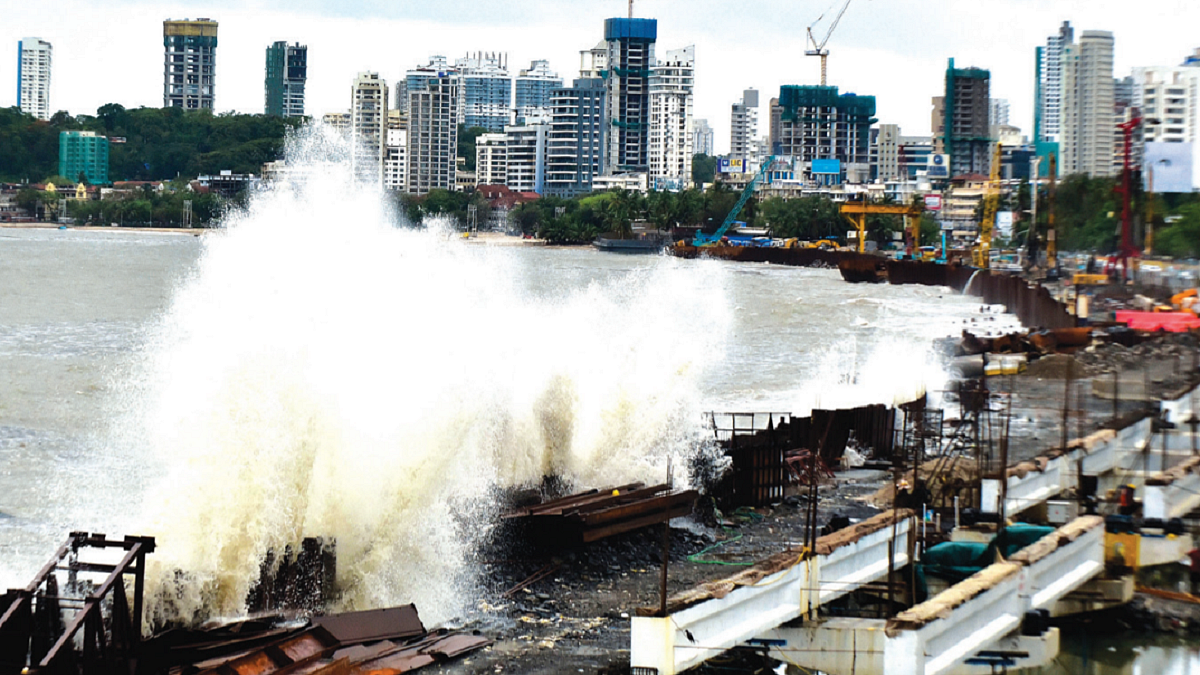Challenges ahead: Extreme weather conditions set to go up
Half of Mumbai is going to be under water. Industries would virtually shut down and refineries and power plants are going to be in serious trouble because of the rise in sea level

High temperatures in summer, extended monsoons and extreme weather events since 2019 have forced Maharashtra to spend a whopping $2 billion dollars in compensation. Little wonder that the state has set itself ambitious targets to address the issue of climate change and move towards greener energy.
The state however faces constraints in terms of limited institutional capacity, bureaucratic fatigue and lack of innovation besides bottlenecks related to implementation. As India's most industrialised state with a 720 km long and vulnerable coastline, Maharashtra has been talking of how important it is to include climate resilience into policymaking, and has embarked upon novel projects, policies and campaigns that reflect a monumental shift in prioritising sustainable development.
It has announced partnerships with the UN Race to Zero Initiative and joined the C40 Cities initiative to address climate change on a global level. Maharashtra also bagged the inaugural Inspiring Regional Leadership Award at the U2C General Assembly that coincided with the United Nations Climate Change Conference (COP26) summit in Glasgow.
The State’s Environment Minister, Aaditya Thackeray’s recent webinar address hosted by the National Indian Students and Alumni Union UK (NISAU) along with King's College, London saw him assure that by 2025, nearly 25% of the energy requirements in Maharashtra will be derived from solar energy. Climate change was already in our backyards, he conceded. Millions of livelihoods would be affected due to climate related disasters, he admitted.

Whether the state is able to strike a balance between safeguarding the environment and continue with growth and industrialization, remains to be seen.
Environment Secretary Manisha Patankar Mhaiskar says “all of us need to accept that climate change is real and this could be the last decade of action.” In comparison to the pandemic, Mhaiskar says, it is more difficult for governments to come together and define action plans for climate change.
“The environment minister and all of us at the ministry recognise that the decade of 2021- 2030 is possibly the last for positive climate action, which can help slow down the impact of climate change. It may be too late 10 years from now. This is why the government has launched a 360-degree campaign Majhi Vasundhara, engaging cities across the state from Mumbai, Pune and Nagpur to villages in Vidarbha,” she explains.
Environmentalist and Executive Trustee of Conservation Action Trust, Mumbai, Debbie Goenka says that while the minister and the CM had their heart in the right place and are well intentioned, ‘delivery is lacking’. “Because we don't have the luxury of time, whatever, the government has been talking about doing should have happened yesterday,” he explains.
Goenka grimly predicts that five years down the line, Maharashtra will have to spend $20 billion in compensation that they don't have. “And whatever will happen when insurance companies stop insuring certain places? Half of Mumbai is going to be under water. Where is the money going to come from? Industries will have all virtually shut down and the refineries and power plants are going to be in serious trouble because of sea level rise,” he asks.
“You cannot destroy a natural environment or natural infrastructure and call it development. If you want to build a road, it cannot be through forests or mangroves. This cannot be an example of development,” he says.
Roshni Nugehalli, Director, Social Justice Group Yuva, concurs. “We often find that the urban poor, who are not responsible for climate emissions, are the most affected by infrastructure projects and climate change impacts. People who live in slums make a huge contribution to the city, and their rights and needs must be considered in policy responses. It includes improving water and sanitation as well as the conditions of their living and transport,” she says.
While awareness and action are both important, climate activists and others who believe that environment protection should not be at the cost of developing world-class infrastructure and industry, both agree that the state will have to turn its commitments into action from mere announcements.
(This article was first published in National Herald on Sunday)
Follow us on: Facebook, Twitter, Google News, Instagram
Join our official telegram channel (@nationalherald) and stay updated with the latest headlines
